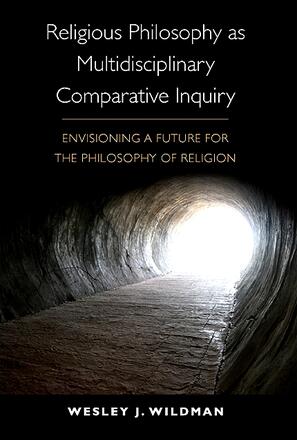
Religious Philosophy as Multidisciplinary Comparative Inquiry
Envisioning a Future for the Philosophy of Religion
Alternative formats available from:
Argues that philosophy, as multidisciplinary comparative inquiry, is essential to the contemporary academic study of religion.
Description
What can philosophy contribute to the study of religion? This book argues that the study of religion needs philosophy in the form of multidisciplinary comparative inquiry. Contradicting the current tendency to regard philosophical reflection and the academic study of religion as independent endeavors best kept apart, Wesley J. Wildman brings them together, offering a broader vision than that of traditional "philosophy of religion" and surmounting many of its difficulties. His newer conception of "religious philosophy" is well suited to the modern, multicultural, secular university. Through multidisciplinary comparative inquiry, religious philosophy allows for a variety of approaches—from historical and analytical work to evocative description and theoretical evaluation of truth claims—and both secular and religious thinkers participate. The tasks and varieties of religious philosophy as they arc across the world's religions and philosophies are discussed along with religious philosophy's modern and postmodern contexts. Wildman's thoughtful and thought-provoking book will be essential reading for all those concerned with the study of religion, present and future.
Wesley J. Wildman is Associate Professor of Philosophy, Theology, and Ethics at Boston University. His books include Fidelity with Plausibility: Modest Christologies in the Twentieth Century, also published by SUNY Press, and Science and Religious Anthropology: A Spiritually Evocative Naturalist Interpretation of Human Life.
Reviews
"…Religious Philosophy as Multidisciplinary Comparative Inquiry has the potential to be a significant game changer for scholars of theology, philosophy, and religion. " — American Journal of Theology and Philosophy
"Wildman offers a bold and sweeping work that defends the relevance and necessity of the enterprise traditionally known as philosophy of religion by offering a comprehensive overhaul of its basic methods and self-understanding. " — CHOICE
"This is an immensely ambitious and wide-ranging book, advocating 'religious philosophy' as a multidisciplinary comparative inquiry, with an important part to play in any liberal college education. It expounds a view of rational inquiry as fallibilist, hypothetical and pragmatic. Although it is primarily an inquiry into the methodology of religious philosophy, in fact it provides a mine of information about postmodernity, comparative religion, and trends in modern philosophy of religion, among other things. The book sets a positive agenda for future work in theology, religious studies, and comparative philosophy. It is an agenda that is new, well argued, and which I hope will be very influential in higher education, and it is set to be a formative work in the field. " — Keith Ward, author of The Word of God? The Bible after Modern Scholarship